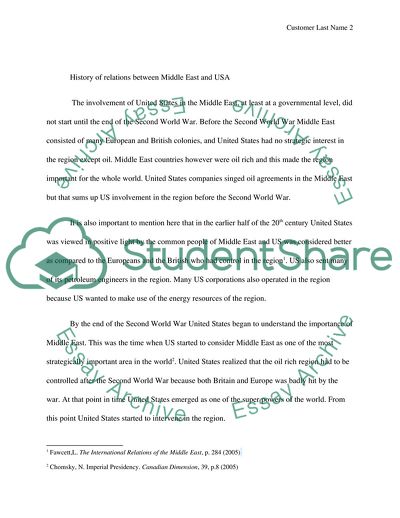Cite this document
(US-Middle East Relations and 9-11 Research Paper Example | Topics and Well Written Essays - 3250 words, n.d.)
US-Middle East Relations and 9-11 Research Paper Example | Topics and Well Written Essays - 3250 words. https://studentshare.org/history/1774545-why-is-the-middle-east-still-in-thrall-to-9-11-conspiracy-theories-and-how-has-the-us-foreign-policy-completely-changed-towards-the-region-after-this-event
US-Middle East Relations and 9-11 Research Paper Example | Topics and Well Written Essays - 3250 words. https://studentshare.org/history/1774545-why-is-the-middle-east-still-in-thrall-to-9-11-conspiracy-theories-and-how-has-the-us-foreign-policy-completely-changed-towards-the-region-after-this-event
(US-Middle East Relations and 9-11 Research Paper Example | Topics and Well Written Essays - 3250 Words)
US-Middle East Relations and 9-11 Research Paper Example | Topics and Well Written Essays - 3250 Words. https://studentshare.org/history/1774545-why-is-the-middle-east-still-in-thrall-to-9-11-conspiracy-theories-and-how-has-the-us-foreign-policy-completely-changed-towards-the-region-after-this-event.
US-Middle East Relations and 9-11 Research Paper Example | Topics and Well Written Essays - 3250 Words. https://studentshare.org/history/1774545-why-is-the-middle-east-still-in-thrall-to-9-11-conspiracy-theories-and-how-has-the-us-foreign-policy-completely-changed-towards-the-region-after-this-event.
“US-Middle East Relations and 9-11 Research Paper Example | Topics and Well Written Essays - 3250 Words”. https://studentshare.org/history/1774545-why-is-the-middle-east-still-in-thrall-to-9-11-conspiracy-theories-and-how-has-the-us-foreign-policy-completely-changed-towards-the-region-after-this-event.


